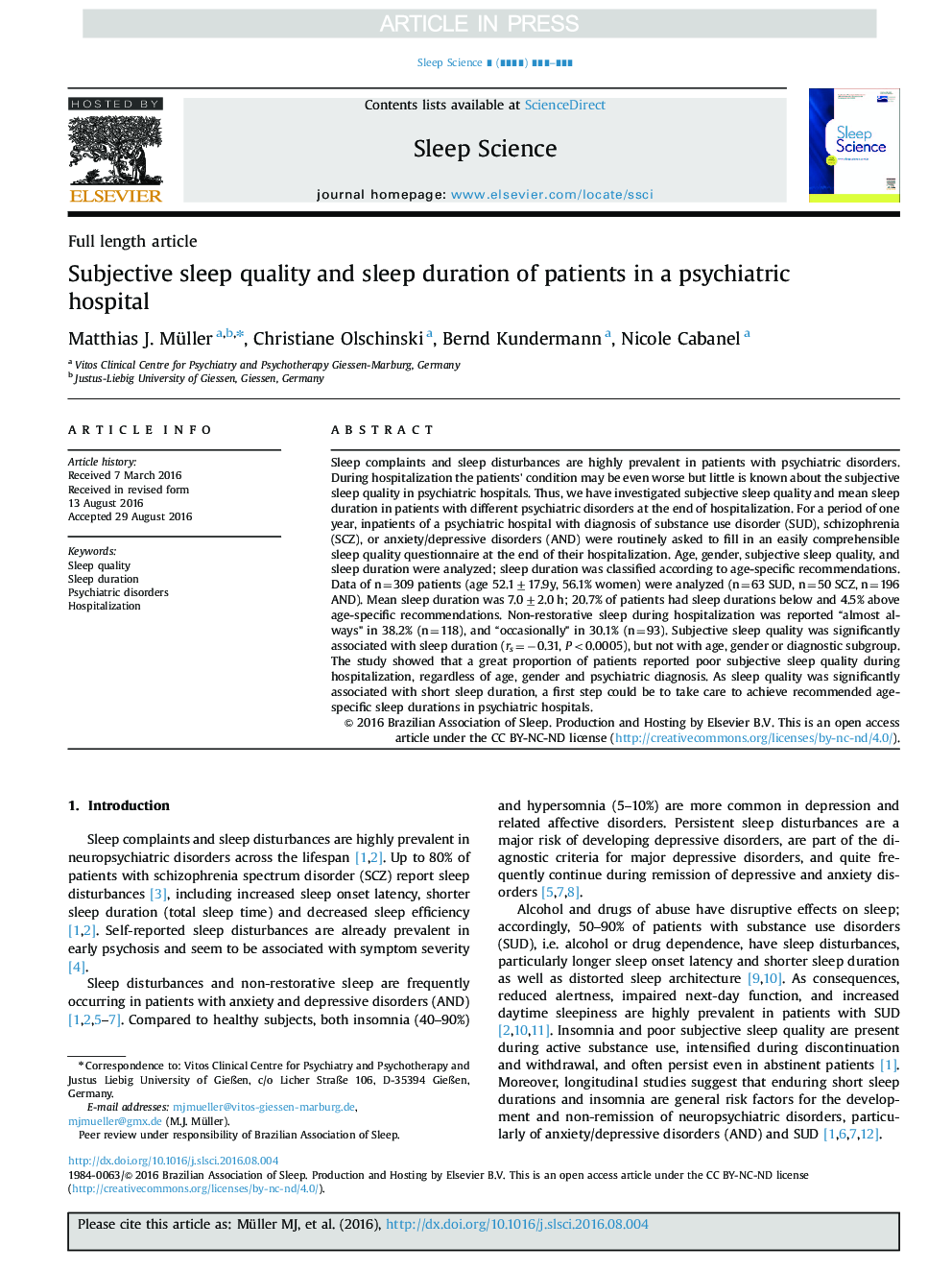| Article ID | Journal | Published Year | Pages | File Type |
|---|---|---|---|---|
| 5621751 | Sleep Science | 2016 | 5 Pages |
Abstract
Sleep complaints and sleep disturbances are highly prevalent in patients with psychiatric disorders. During hospitalization the patients' condition may be even worse but little is known about the subjective sleep quality in psychiatric hospitals. Thus, we have investigated subjective sleep quality and mean sleep duration in patients with different psychiatric disorders at the end of hospitalization. For a period of one year, inpatients of a psychiatric hospital with diagnosis of substance use disorder (SUD), schizophrenia (SCZ), or anxiety/depressive disorders (AND) were routinely asked to fill in an easily comprehensible sleep quality questionnaire at the end of their hospitalization. Age, gender, subjective sleep quality, and sleep duration were analyzed; sleep duration was classified according to age-specific recommendations. Data of n=309 patients (age 52.1±17.9y, 56.1% women) were analyzed (n=63 SUD, n=50 SCZ, n=196 AND). Mean sleep duration was 7.0±2.0 h; 20.7% of patients had sleep durations below and 4.5% above age-specific recommendations. Non-restorative sleep during hospitalization was reported “almost always” in 38.2% (n=118), and “occasionally” in 30.1% (n=93). Subjective sleep quality was significantly associated with sleep duration (rs=â0.31, P<0.0005), but not with age, gender or diagnostic subgroup. The study showed that a great proportion of patients reported poor subjective sleep quality during hospitalization, regardless of age, gender and psychiatric diagnosis. As sleep quality was significantly associated with short sleep duration, a first step could be to take care to achieve recommended age-specific sleep durations in psychiatric hospitals.
Related Topics
Life Sciences
Neuroscience
Behavioral Neuroscience
Authors
Matthias J. Müller, Christiane Olschinski, Bernd Kundermann, Nicole Cabanel,
